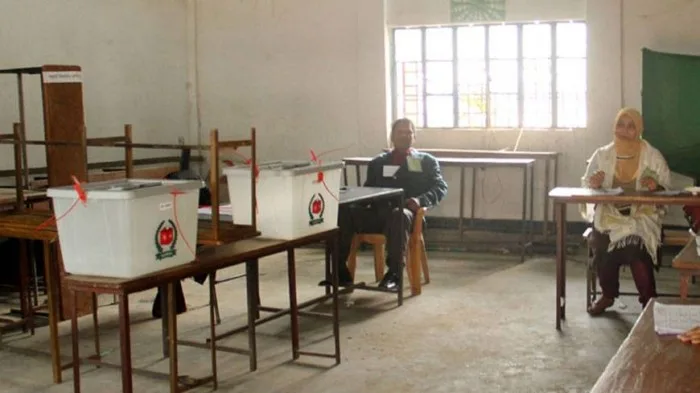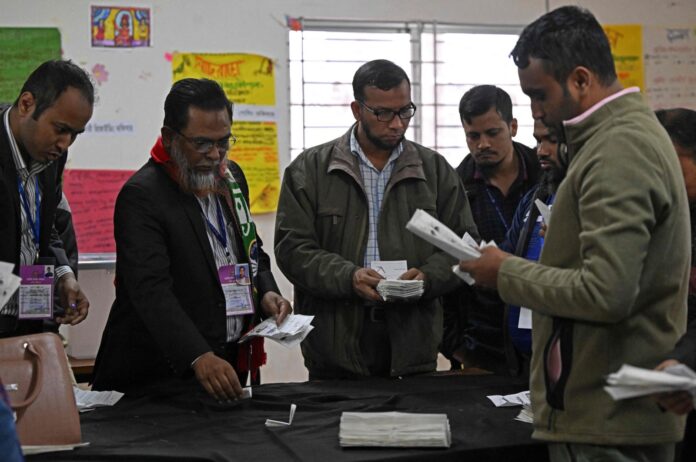
THE United Nations has been concerned about the security of small states from the time it came into existence. Its concern was because the large number of states that became independent due to decolonisation and joined the United Nations after it had established following the end of World War II were mostly small states. The United Nations recognised the vulnerability of these small states to threats of the big powers in the UN Charter and reaffirmed it through UNGA Resolution A/RES/49/31 of May 9, 1994.
Resolution A/RES/49/31 stressed, appealed and requested regional and international organisations and the UN secretary general to assist the security of the small states under the UN Charter. The resolution called on the UN Security Council ‘to pay special attention to the protection and security of small states.’
Geography is lopsidedly in India’s favour in South Asia. India is a nuclear power. It is the fifth largest economy in the world by nominal gross domestic product and the third largest by purchasing power parity. India is, thus, by far the most powerful country in South Asia surrounded by countries small in all respects sans Pakistan, which like India, is a nuclear power. The security syndrome of a small state vis-à-vis a powerful one as highlighted in the UN Charter and UNGA Resolution A/RES/49/31 are palpably present in Bangladesh-India relations. India complicated this syndrome further with its ‘all eggs in the Awami League basket’ foreign policy since 1971 under which it considers the interests and the adversaries of the Awami League as its own.
The January 7 election in Bangladesh highlighted the security syndrome of a small state notwithstanding the UN Charter and the UNGA resolution because the powerful states/organisations do not care about what they profess. The United States sent leading to the election several high-level delegations from the White House and the state department to Dhaka in pursuit of human rights and democracy focused on a free and fair election. The European Union also sent delegations to Dhaka for the same purpose. The spokesperson of the UN secretary general in New York became the beacon of hope for the opposition forces in their struggle for their political and democratic rights.
Bangladesh’s election, therefore, held great promise for overcoming the security syndrome of a small state because the powerful states/organisations appeared serious and committed to the UN Charter and the resolution on the security of small states. They failed to uphold their commitment because in the end, they succumbed to one of their own and allowed it to make a small state more insecure. Bangladesh, following the January 7 election, is now one push away from becoming a one-party state, permanently.
The general secretary of the Awami League spilt the beans. He claimed that ‘India stood strongly by our side’ and stopped the United States, the European Union and the United Nations from playing their ‘evil game’. The Bharatiya Janata Party-led Indian government stopped the ‘evil game’ for reasons that the United States, the European Union and the United Nations failed to comprehend. It had to stop the pro-Islam Bangladesh Nationalist Party from gaining power in Bangladesh because it is the antithesis to the Hindutva mantra under which it would fight the crucial 2024 Indian general election. The BJP government worked through the Americans of Indian origin in the White House and the state department to stop the free and fair election that the Biden administration initially promised that the Bangladesh Nationalist Party would have won by a landslide.
The European Union and the United Nations followed the United States and backtracked on their commitment to a free and fair election. They watched the AL regime hold the absurdly surreal election. They also went into denial about the consequences that they had promised if the election was not free and fair. Most Bangladeshis now, therefore, think that these powers betrayed them. The United States, the European Union and the United Nations walked into India’s game plan. They betrayed the cause of human rights, democracy and free and fair elections in Bangladesh and helped the cause of the Bharatiya Janata Party’s Hindutva agenda to help it win India’s general election. They failed miserably to comprehend the Indian factor in the politics of Bangladesh and South Asia.
The January 7 election has been a defining moment, a watershed in Bangladesh-India relations. It flagged India’s unflinching support for the Awami League for which it successfully pursued the Aawami League’s case with the United Nations and the United European and the United Nations to withdraw their pursuit for a free and fair election to strengthen democracy and human rights in Bangladesh. The January 7 election, thus, gave most Bangladeshis a reason to be critical of India and not to be blindly grateful to it for its role in 1971 because it is now obvious to all and sundry that India’s most important interest in Bangladesh is to keep the Awami League in power at any cost.
Most Bangladeshis now believe that their political rights and their security concern as a small state will never go unless India changes its illogical ‘all eggs in the AL basket’ foreign policy. They further believe that they cannot trust the western powers and the United Nations and they must fight for their rights themselves. Anti-India sentiments are present in varying degrees in all the small states in South Asia. The Maldives used it for its successful ‘India Out’ movement. A ‘Boycott India’ movement started in Bangladesh spontaneously out of the disappointment after the January 7 election.
The Bangladesh Nationalist Party was initially non-committal to the ‘Boycott India’ movement. It has now put its political weight behind it, sensing its potential. Bangladesh is a huge market for India with the balance of trade heavily in India’s favour. Bangladesh is the fourth largest remittance destination for India. Indians in Bangladesh remitted $10 billion in 2020 although curiously a few Bangladeshis are aware of it. Strategically, Bangladesh is priceless to India’s security concerns on the China factor.
Dramatic developments in information gathering and dissemination technologies such as Facebook, WhatsApp, Instagram, et cetera are now exposing India’s ‘all eggs in AL basket policy’ as one against the UN Charter and UNGA Resolution A/RES/49/31 on protecting security concerns of the small states. The surreal policy has stood all these 53 years of Bangladesh-India relations. It has never been tested in the past as it is today due to these technologies that are exposing this policy as the worst obstacle for the development of a healthy and logical Bangladesh-India relations or that between a big and powerful neighbour and a small one. Ironically, India and Bangladesh need each other for a host of geopolitical, historical, environmental and economic reasons.
These technologies are also flagging for all and sundry the failure of the United States, the European Union and the United Nations to understand the Indian factor that is making them break their promises and siding with forces opposing democracy, human rights and free and fair elections. They are now less trustworthy to most Bangladeshis, the United Nations more so because of the Gaza genocide. The United States has been the worst loser due to its inability to grasp the India factor. Most Bangladeshis now regret that they trusted its promises and commitments while the Awami League believes that it is an ‘evil’ power. The much-vaunted Indo-Pacific Strategy of the United States has failed miserably because it failed to understand the India factor, succumbed to India and backtracked on its promises to most Bangladeshis.
China assessed the India factor better than the rest. It benefited the most from the January 7 election although its containment was one of the major bedrocks of the US Into-Pacific Strategy. While India was busy convincing the United States to let the Awami League hold the election its way, China moved the closest to the AL regime at a time when it needed a power like China (and Russia) to counter the United Nations and the west. China also correctly assessed that the BJP-led government would not come openly and directly to assist the AL regime as the Congress-led government did in 2014 because the Hindutva mantra on which the Bharatiya Janata Party would be fighting India’s 2024 election perceives Bangladesh as an overwhelmingly Muslim-majority state.
source : new age

